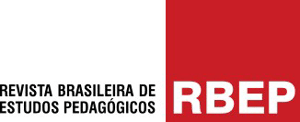Abstract:
This article approaches the disabled undergraduate students´ assessment in the perspective of inclusive education and highlights the concerns of professors faced by these challenges. It starts with the conception of assessment as a multifaceted process, bringing up some of its aspects such as student learning. The text is based on an excerpt of my doctorate thesis, which aimed at discussing the inclusion of disabled students in undergraduation and to understand the effects of this process in college teaching. Empirical data - produced by means of narrative interviews with professors working with disabled students in different undergraduate courses of two universities of Santa Catarina - was examined under the perspective of discourse analysis, supported by Foucauldian references. The study shows that the presence of disabled students in college enhances the conflicts inherent to the learning assessment, predominantly characterized as qualifying and selective, while inclusion movements produce solidary subjectivities. In contact with disabled students, professors discover the plurality of inclusion, and understand it as an unrest that brings up challenges, as well as the deconstruction of standardized views and the understanding that, in order to teach and evaluate students, it is necessary to learn from the differences.
Keywords:
undergraduate inclusion; disabled students; college teaching

 Thumbnail
Thumbnail
 Fonte: Elaborado pela autora
Fonte: Elaborado pela autora